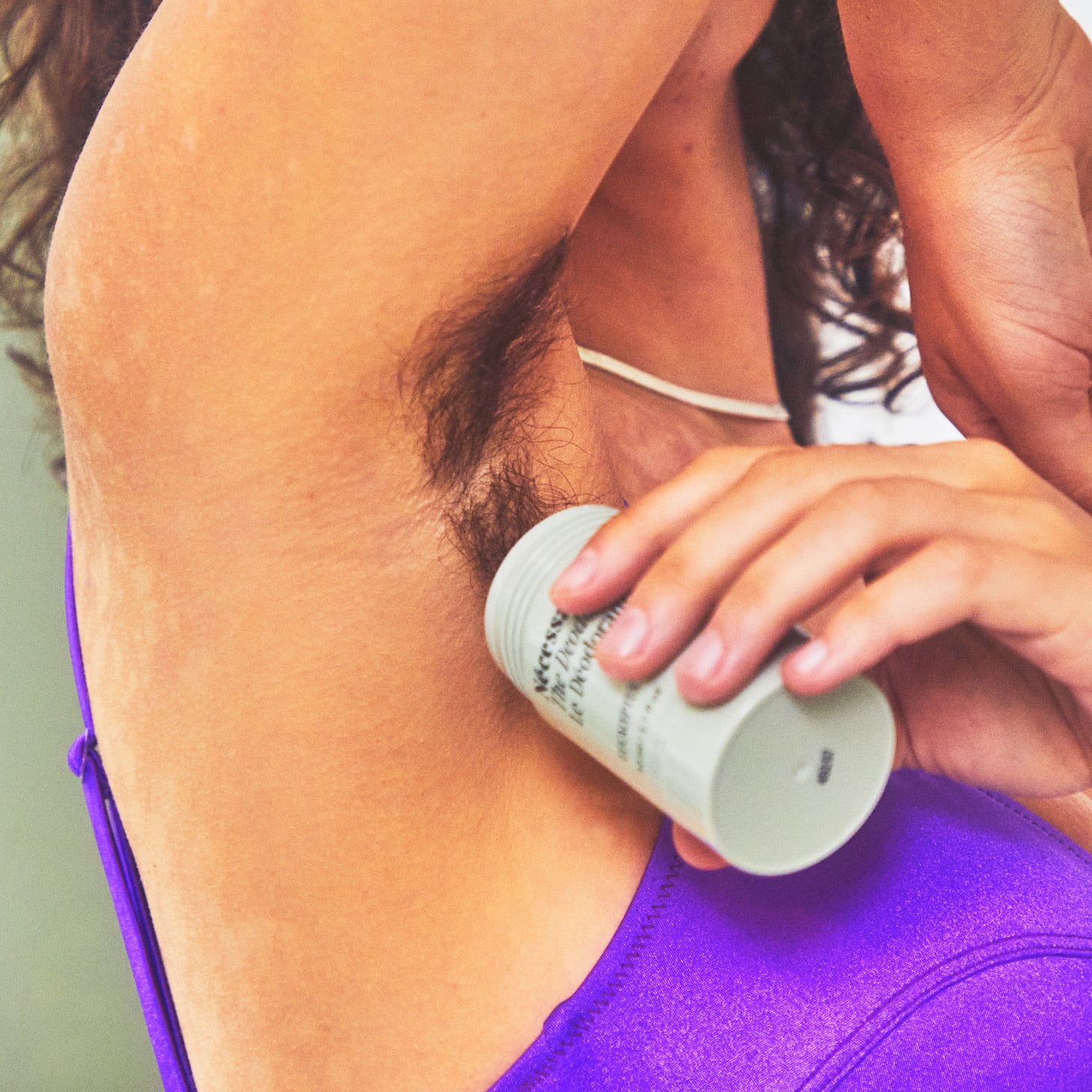
From losing your sense of smell and taste to toe rashes and hair loss, the list of odd COVID-related symptoms is long and puzzling. Nearly three years into the pandemic, we’re only starting to confirm and understand why COVID does the things it does — for example, messing with your period. Well, there’s another side effect to add to the tally: weird body odor.
I hatched the theory after my own suspected COVID case left me smelling . . . interesting. For about a month and a half after recovering, the second I started sweating, my pits smelled like onions. Normally, it takes an especially stressful meeting, a scramble to catch the train, or a really tough workout for me to get a noticeable smell going. But both during and after having COVID, I started reeking the moment I got dewy. And no, it wasn’t my own sense of smell that was off; I had my partner take a whiff, and he confirmed that I smelled unlike my usual self. Frankly, he said I stank. (Romantic, truly.)
Though it took less than two months for me to return to my usual body odor (phew), I needed to know: was it just me, or was this a thing? Naturally, I turned to Reddit to confirm my suspicions and found a few other people reporting the same sort of change in body odor that seemed to be linked to COVID. It seemed my hunch was right — or, at the very least, it wasn’t just me.
But what do docs have to say, and why would COVID affect the smell of your sweat? MDs weigh in.
Can COVID Change Your Body Odor?
The virus that causes COVID-19 (aka SARS-CoV-2) and its side effect on body odor has yet to be studied extensively, so we can’t say for sure — however, signs point to yes.
In general, infection, diabetes, and other medical conditions can cause malodorous sweat, says dermatologist Snehal Amin, MD, cofounder and surgical director at MDCS Dermatology.
For example, one small 2014 study revealed that sick people had “more aversive body odor” than those who were healthy, says Marisa Garshick, MD, FAAD, a board-certified dermatologist and clinical assistant professor at Cornell University. “The study suggests that the immune response may contribute to specific body odor, though more research is needed.”
In the past, doctors actually used to identify certain infectious diseases via their smell — for example, someone with typhoid was described as smelling like “freshly baked brown bread,” while diphtheria reportedly gave off a “sweetish” scent, per a 1995 article in the Archives of Dermatology. This diagnostic method has been largely overshadowed, understandably, by modern technology — but maybe there’s a case for bringing back the “sniff test” in medicine, even as far as COVID is concerned.
Like other diseases, including ovarian cancer, the coronavirus apparently has an “odor fingerprint,” which may be useful as a way to single out infected people in environments such as airports. A study published in May investigated using body odor as a way to screen people for COVID-19 infections and found that “people infected with SARS-CoV-2, with asymptomatic or mild symptoms, have a distinct odour that can be identified by sensors and trained dogs with a high degree of accuracy.” The virus reportedly changes the compounds in someone’s BO, generating a specific odor that the sensors can detect, according to the London School of Hygiene & Tropical Medicine, one of the organizations leading the study. This doesn’t necessarily mean the change in smell is perceptible to humans, but it confirms that the infection does seem to affect body odor to some degree.
Why Does COVID Affect Your BO?
Like many of the other odd gifts COVID bestows, the change in body odor seems to trace at least partially back to stress. “Body odor can become more pronounced during stressful periods, such as mental or physical stress,” says Brendan Camp, MD, FAAD, double board-certified dermatologist at MDCS Dermatology in Manhattan and clinical assistant professor of dermatology at Weill Cornell Medical College. And the stress that accompanies COVID is a one-two punch of both types. There’s the mental/emotional stress that comes with the pandemic in general and receiving a positive test result. Plus, the COVID infection itself also acts as a huge physical stressor, putting a lot of strain on your body while it fights the virus.
Translation: “COVID can certainly trigger our stress hormones in fighting off the infection,” says Azadeh Shirazi, MD, board-certified dermatologist at La Jolla Dermatology and Laser Center. And “stress sweat is a different beast,” Dr. Shirazi says.
When we overheat, our nervous system sends signals to sweat glands called eccrine glands to produce sweat to cool us down. “The sweat from the eccrine glands is mostly water and a little salt,” she says. “But when we get stressed, our body releases adrenaline and cortisol, prompting a different type of sweat-gland activation: the apocrine glands.”
Sweat from apocrine glands is thicker and richer in proteins and fats, Dr. Shirazi says, and it “interacts differently with the bacteria on your skin, creating a stronger body odor.” Apocrine glands are found in hair-bearing areas (such as the genitals and armpits), whereas eccrine glands are found on the palms, feet, and forehead. Since hair can trap oil, sweat, and bacteria, this only amplifies the odor created by apocrine glands, Dr. Shirazi explains.
But why would this pungent stress sweat last for weeks or months? It’s unclear, as is the case with many of the long-COVID symptoms we’re trying to understand. Initial research suggests that this symptom — like some of the other long-term effects of the virus — might be linked to nervous-system dysfunction.
One study found evidence of sweat dysfunction in individuals with COVID-19, and it was suspected to be a result of dysautonomia, a malfunction of the autonomic nervous system, which includes the sympathetic nervous system, Dr. Garshick says. We know that COVID can cause some neurological changes to happen and persist (such as the loss of taste and smell), and this sweat dysfunction can be one sign of that, she says. While the exact reason it happens is unknown, “it is possible this can linger for several months after recovery from COVID-19.”
If you’re stuck with stinkier BO post-COVID, my condolences — although, the bright side is that means you likely still have your sense of smell!
Image Source: POPSUGAR Photography / Matthew Kelly
